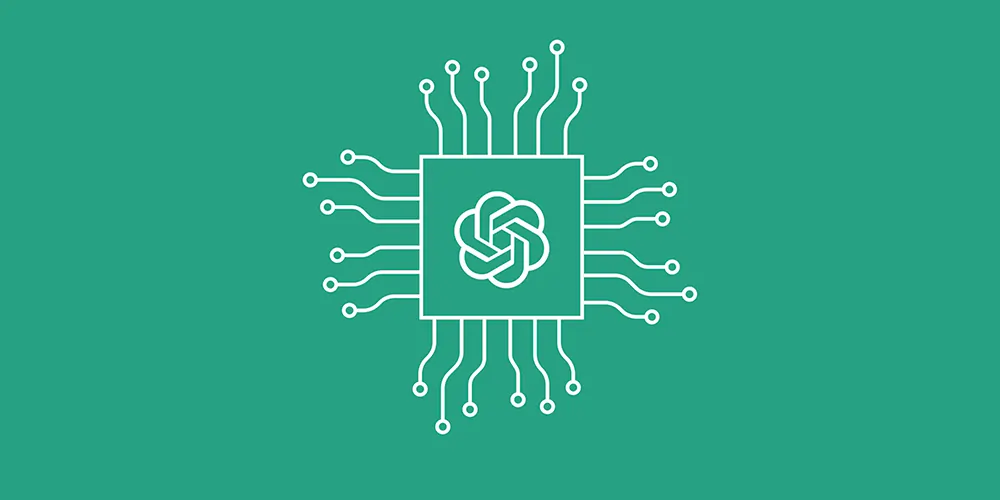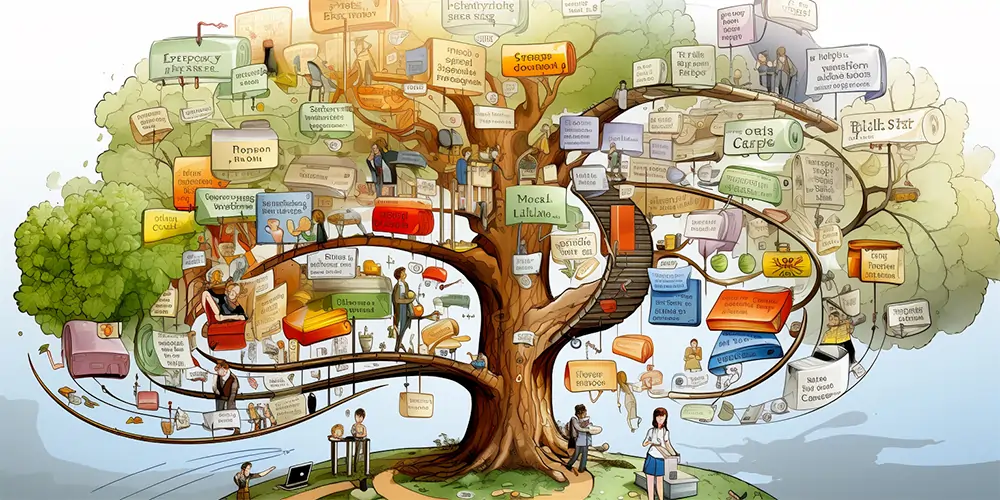Founded in the heart of tech innovation, San Francisco, OpenAI emerged as a private research laboratory with a powerful mandate.
Elon Musk, Ilya Sutskever, Greg Brockman, and a team of visionaries founded OpenAI in 2015.
As of 2023, the key figures at OpenAI include Sam Altman (CEO), Greg Brockman (Chairman & President), Ilya Sutskever (CSO), and Mira Murati (CTO).
Elon Musk, an initial board member and substantial contributor to OpenAI, stepped down from his board position in 2018. The decision was made to avoid potential conflicts of interest. This was mainly due to his concurrent role as CEO of Tesla, a company also engaged in AI development.
Their mission is to ensure that Artificial General Intelligence (AGI) – systems that can work more autonomously than humans in most valuable tasks – benefits everyone, not just a select few.
Sam Altman, CEO of OpenAI, encapsulates the organisation’s ethos well: “At OpenAI, our principles are our guiding light. They ensure we stay on course in our mission to ensure AGI benefits all of humanity.”
Mission and Objectives of OpenAI
This mission is guided by a set of principles that ensures its focus remains unwavering and committed to the larger good:
- Broadly Distributed Benefits: OpenAI is committed to applying any influence it obtains over AI’s deployment to ensure it benefits everyone, avoiding uses of AI or AGI that could harm humanity or concentrate power excessively.
- Long-term Safety: The company is dedicated to conducting research aimed at making AGI safe. If another project that aligns with their safety and value principles comes close to building AGI before they do, OpenAI commits to assist rather than compete.
- Technical Leadership: OpenAI aspires to be at the cutting edge of AI capabilities, acknowledging that AI will have broad societal impact even before AGI comes into the picture.
- Cooperative Orientation: OpenAI actively cooperates with other research and policy institutions. They aim to foster a global community to jointly tackle AGI’s global challenges.
- Policy Advocacy: They recognise the societal impact of AI even before AGI and strive to lead in areas directly aligned with their mission and expertise. OpenAI advocates for policies and safety measures that are in line with their commitment to beneficial and safe AGI development.
OpenAI was established due to worries that AI, if misused, could detrimentally impact humanity instead of being beneficial. The founders realised the need for careful guidance to prevent such a catastrophe.
This understanding has shaped their focus on long-term safety and broad benefits.

OpenAI’s Research and Development
OpenAI has set its sights on making significant strides in the AI sector.
OpenAI is deeply committed to systematic AI research and development. They view the path to AGI as a marathon, not a sprint, requiring sustained commitment and focus.
This commitment to the long haul has resulted in several breakthroughs. However, the organisation maintains a balanced approach, understanding the importance of applied and fundamental research.
The research aims to make AGI safe and lay the groundwork for its widespread adoption across the AI community.
“It’s essential to strike a balance between applied and fundamental research. Each breakthrough, each discovery takes us one step closer to AGI that’s safe and beneficial for all.” – Ilya Sutskever, Co-founder of OpenAI.
Notable Projects and Releases
OpenAI’s dedication to pushing the limits of artificial intelligence has led to the creation of numerous innovative AI tools and products.
GPT-4
In March 2023, OpenAI introduced GPT-4, the latest in its line of generative pre-trained transformer models.
GPT-4, like its predecessors, is a language model trained on extensive internet datasets. This model can generate coherent and contextually appropriate text based on provided prompts, making it valuable for various applications, from drafting emails to writing code.
GPT-4 was released both as an API and as a feature of ChatGPT Plus.
DALL-E
In 2021, DALL-E was released, a deep-learning model capable of generating digital images from natural language descriptions.
This model represents a significant achievement in AI, combining the domains of natural language processing and computer vision.
DALL-E can create entirely new, coherent, and often imaginative visual content by understanding and interpreting textual input.
OpenAI Five
OpenAI Five is a team of five AI agents developed to play Dota 2, a popular online multiplayer video game.
OpenAI Five learned to play the game at a high level entirely through reinforcement learning algorithms, demonstrating the potential of AI in complex, strategic environments.
The AI team has even competed against professional human teams, underscoring the power of AI in mastering complex tasks.
Also read:
ChatGPT
ChatGPT, an AI chatbot developed by OpenAI, is based on the GPT-3.5 model.
It was launched with a free preview in December 2022. Within the first five days, the preview attracted over a million signups, highlighting the interest and potential of AI in natural language conversation and interaction.
OpenAI Codex
OpenAI Codex is an AI system that converts everyday language into programming code.
Trained on a range of public code databases, Codex can interpret and generate code in over a dozen programming languages.
This product has significant implications for software development, potentially automating specific coding tasks and assisting developers in their work.
Whisper
Whisper, an automatic speech recognition (ASR) tool, can recognise, transcribe, and translate speech in about 100 languages.
It has been trained on a multitude of audio data, including technical language and different accents.
These models and products underscore OpenAI’s commitment to developing safe and beneficial AI and its ongoing efforts to push the boundaries of what AI can achieve.
OpenAI’s Cooperative Stance
In a time when competition usually trumps collaboration, OpenAI stands out for its cooperative spirit.
They are committed to working alongside other research and policy institutions, understanding that addressing AGI’s global challenges is a collective effort.
Rather than viewing such projects as competition, OpenAI sees them as allies in pursuing AGI development.
“We’re not in a race against other institutions. We’re in a race against the clock. It’s not about who reaches AGI first, but how we get there safely and beneficially.” – Greg Brockman, Co-founder of OpenAI.
The goal is clear: to create a global community working together on the global challenges AI poses. Through cooperation and collaboration, AGI can be developed and managed in a way that benefits all of humanity.

OpenAI and Microsoft
Since 2019, OpenAI and Microsoft have maintained a fruitful partnership.
In 2023, Microsoft invested significantly in OpenAI, incorporating its AI technology into their Azure cloud platform. This investment wasn’t Microsoft’s first show of interest; it’s a continuation of Microsoft’s commitment towards OpenAI.
Microsoft now uses the technology developed for ChatGPT in its search engine, Bing, creating an AI-infused version.
Additionally, AI-based features have been added to Microsoft’s Edge browser. ChatGPT functionality is also being integrated into Microsoft 365 products like Word, Excel, Outlook and Teams.
These collaborations serve as an example of how companies can integrate advanced AI technology into their services to bring about improved user experiences.
Impact on Society and Everyday Life
As we move into an AI-influenced society, OpenAI’s work is crucial for guiding these advancements for everyone’s benefit.
Their work is designed to regularly yield beneficial results that affect individuals globally.
It’s more than just theoretical research. It has found practical applications that resonate with the daily lives of people.
Consider their language model GPT-4, for instance. It’s a prime example of AI positively influencing various sectors, from customer service automation to tutoring and language translation services.
A Global Outlook
OpenAI aims to influence global norms and standards in AI development and usage by pushing the boundaries of what AI can achieve.
In the broader context of AI evolution, OpenAI guides us towards a future where AI helps humanity.
With an unwavering commitment to ensuring AI’s benefits are shared broadly, and a steadfast focus on safety and cooperation, they are setting a benchmark in AI research.
As we head into a future increasingly influenced by AI, OpenAI and organisations alike, provide us with the understanding and tools to navigate this complex, fascinating frontier with less fear and more optimism.




